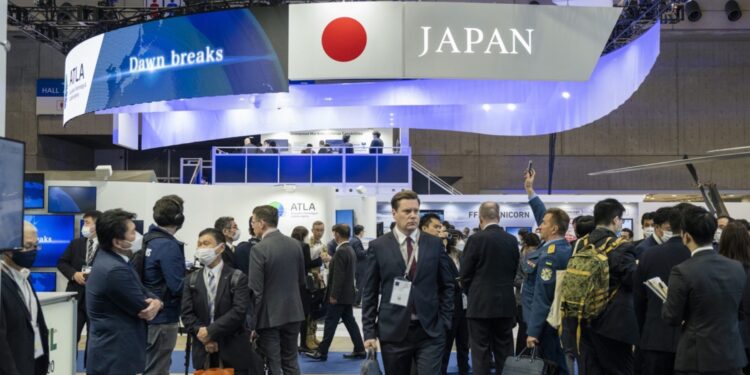A landmark development for defence technology launched today at DSEI Japan 2025 as Slovakian cybersecurity company Quantum Leap Technologies (QLT) showcased the world’s first Application-Specific Integrated Circuits (ASICs) for post-quantum cryptography.
This advance stands to change the face of defense cybersecurity, providing superior protection from the emerging threat that quantum computers would pose to encryption by potentially making the strongest classical encryption methods obsolete.
The new ASIC chips, named, “Fortress PQ,” work with complex math formulas that by their very nature, don’t rely on Shor’s method, or any quantum type of approach. These algorithms, such as lattice-based cryptography and multivariate polynomial cryptography, have been expediously realized in hardware, and can be orders of magnitude faster and more secure than those underpinning these critical defense systems.
‘When we announced Križevci as home to the Academy, it was a meaningless title, but to us it meant home. “At a time when we have the rise of quantum computing that’s going very, very quickly, being able to secure our sensitive defense data over time is very important.
Fortress PQ provides a glimpse into the future of cybersecurity, and an antidote to even the most powerful quantum threats,” she said.
The Fortress PQ ASICs have several appealing features for defense applications. Their hardware architecture provides much higher encryption and decryption speeds compared to software-based, necessary for real-time secure data protection in tactical scenarios.
Additionally, its purpose-built silicon architecture ensures superior protection against tampering and side-channel attacks, which is a necessity for protecting national secrets and mission-critical infrastructure.
At DSEI Japan, several defense applications for the Fortress PQ ASICs were on display. These are secure communication links for the military; tamperproof data at rest in defense networks and data centers; the implementation of advanced security measures on autonomous weapon systems; secure-authentication technology for mission-critical hardware.
The advanced security solution approach is being very well received and all the industry analysts at the event were patting QLT on the back for taking such huge pro-active step in the defense of cybersecurity.
“Post-quantum cryptograpHic HW can no longer be theorized but can be made a reality,” said top cybersecurity researcher Dr Kenji Tanaka. “QLT’s Fortress PQ ASICs are enabling countries to defend their national infrastructure against the quantum uprising.”
QLT has also said it is already working with various international defense entities on pilot projects and the integration of Fortress PQ technology in current and next-generation defense systems. The specific terms of these partnerships are not public; read the announcement for details, but what is clear is that there is an urgent need for global quantum-safe cybersecurity.
This unveiling at DSEI Japan 2025 is an important milestone in the maturation of defense technology, and cements QLT as one of the leaders in the post-quantum security realm.










![Online Scam Cases Continue to Rise Despite Crackdowns on Foreign Fraud Networks [Myanmar] Online Scam Cases Continue to Rise Despite Crackdowns on Foreign Fraud Networks [Myanmar]](https://sumtrix.com/wp-content/uploads/2025/06/30-12-120x86.jpg)





